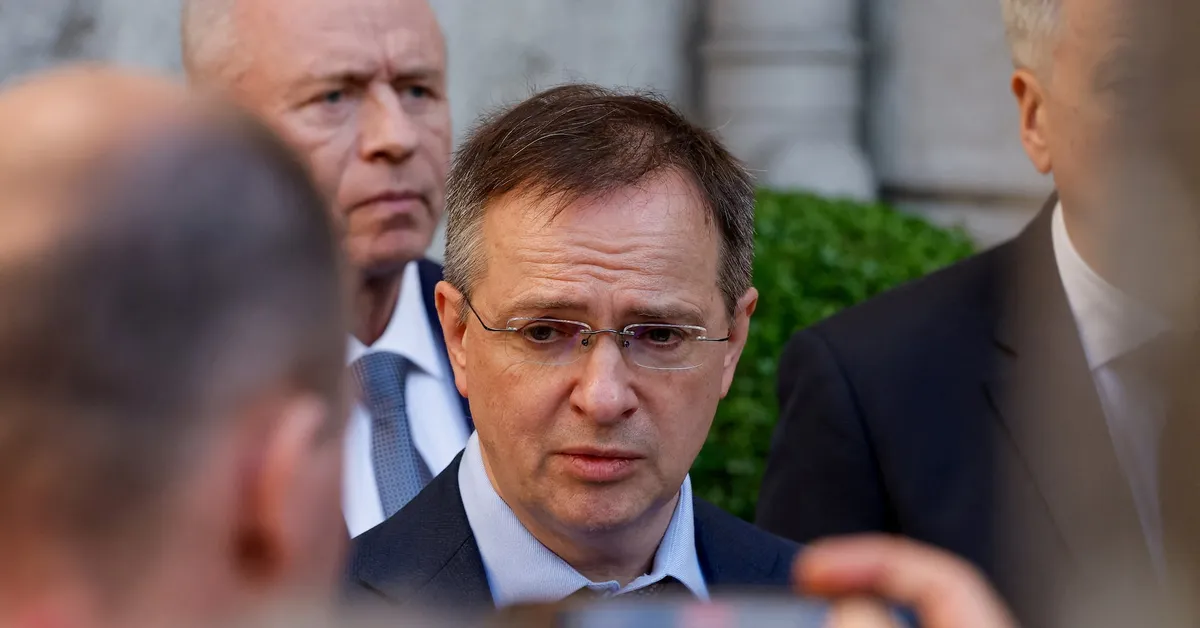
On June 2, 2023, Russian and Ukrainian officials are set to convene in Istanbul for their second round of direct peace talks since the onset of the conflict in 2022. Despite the ongoing diplomatic efforts, the two sides remain significantly divided on pathways to conclude the war, even as hostilities continue to escalate.
U.S. President Donald Trump has urged both Russia and Ukraine to negotiate peace, yet tangible progress has been elusive. The White House has issued stern warnings that the United States may retreat from its involvement in the conflict if both parties remain intransigent and unable to reach a peace agreement.
The initial round of negotiations, held on May 16, culminated in the largest prisoner exchange of the ongoing war but failed to establish any form of ceasefire or peace framework, with both nations merely outlining their initial positions.
In a recent announcement, President Volodymyr Zelenskiy confirmed that Ukraine's Defence Minister Rustem Umerov would lead the Ukrainian delegation in Istanbul, alleviating concerns about Ukraine's attendance at the talks. Meanwhile, the Russian delegation will be led by Kremlin aide Vladimir Medinsky, who previously stated that military actions and negotiations should be conducted concurrently, referencing the historical figure Napoleon Bonaparte.
As the peace talks approach, military tensions have surged. Over the weekend, Ukraine executed one of its most daring operations targeting Russian nuclear-capable long-range bombers in Siberia. In response, the Kremlin reportedly launched 472 drones towards Ukraine, marking the highest nightly drone deployment recorded during the conflict.
The idea of direct negotiations was initially suggested by President Vladimir Putin following Ukraine's demands for a ceasefire, which Russia rejected. Putin indicated that Russia would formulate a memorandum outlining potential peace accord parameters before discussing a ceasefire. As of this weekend, Ukraine indicated it was still awaiting the draft memorandum from the Russian side.
Medinsky confirmed that Russia has received Ukraine's draft and stated that the Kremlin would respond on Monday. According to Trump envoy Keith Kellogg, both parties will present their proposals for peace terms during the talks, although it is evident that after three years of conflict, significant disparities persist between Moscow and Kyiv.
Kellogg has noted that the United States intends to participate in the discussions, alongside representatives from Britain, France, and Germany. However, the level of U.S. representation remains unspecified. Ukraine's delegation will also include its deputy foreign minister and various military and intelligence officials, as designated by an executive order from Zelenskiy.
In past negotiations, Putin outlined conditions for an immediate cessation of hostilities, including Ukraine's abandonment of its NATO aspirations and the withdrawal of troops from four contested regions predominantly under Russian control. The Ukrainian negotiators are expected to propose a roadmap aimed at achieving a sustainable peace settlement, which includes provisions that forbid restrictions on Ukraine's military capabilities post-agreement, deny international recognition of Russian claims over occupied territories, and necessitate reparations for Ukraine.
The proposed document indicates that the current front line will serve as the basis for territorial discussions. Presently, Russia controls nearly one-fifth of Ukraine, encompassing approximately 113,100 square kilometers, comparable to the size of the U.S. state of Ohio.
Sparked by Russia's invasion in February 2022, the war has led to catastrophic humanitarian consequences, with the United States estimating over 1.2 million fatalities and injuries since the conflict's escalation. Trump has publicly criticized both Putin and Zelenskiy while expressing optimism that a peace resolution is attainable, warning that delays by Putin could result in severe sanctions against Russia.